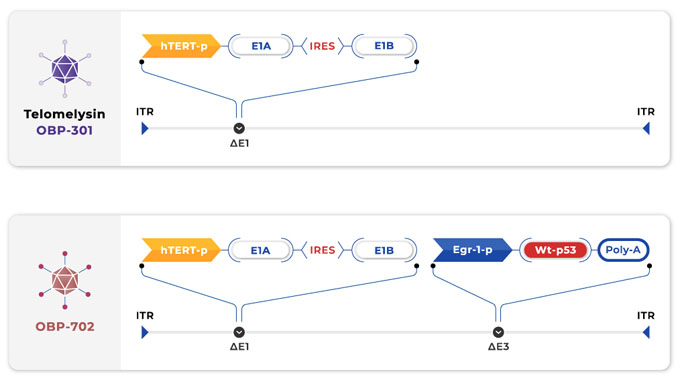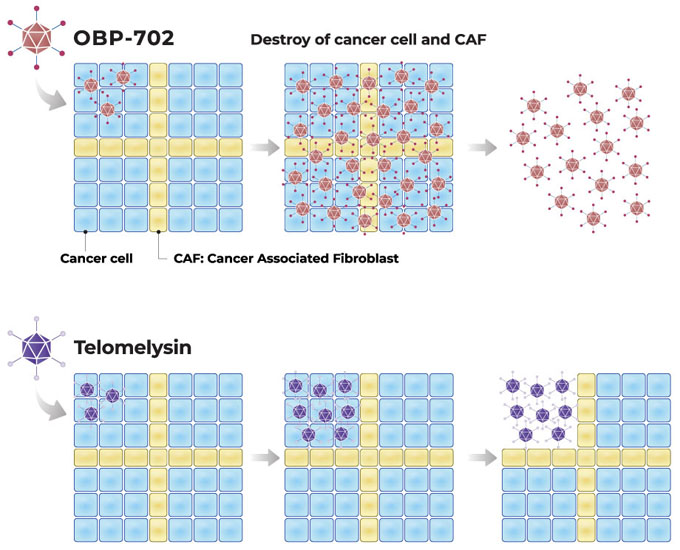OBP-702
- Outline / Target indication
- Mechanism
Outline
OBP-702, next generation Telomelysin, is the p53-expressing, telomerase-specific oncolytic adenovirus, and represents a novel anti-tumor gene therapy strategy. OBP-702, is a p53-armed variant of Oncolys’ Telomelysin (OBP-301).
In OBP-702, the (hTERT) promoter drives the expression of two adenoviral genes, E1A and E1B, that are linked to an internal ribosomal entry site (IRES) and the wild-type p53 gene controlled by the Egr1 promoter, inserted into the E3 region of the adenoviral genome.
Cancer gene therapy is expected to be promising anti-tumor treatment for inducing cell death via introduction of a therapeutic tumor suppressor gene or the abrogation of an oncogene. In pre-clinical studies, OBP-702 have shown to induce apoptosis and autophagy resulting in cell death.

OBP-702 induces apoptosis and autophagy activation in tumor cells via the wild type p53 carried by the virus genome, thus can induce oncolysis in a broad range of solid tumors regardless of the endogenous p53 status in the tumor. OBP-702 overcomes the OBP-301 resistance in multiple tumor cell types and lyses tumor with high potency without harming the normal tissues.
In tumor-bearing animal models, OBP-702 induces immune modulation in addition to tumor lysis, enhances the anti-tumor immunity of immune checkpoint inhibitor such as PD1 monoclonal antibody.

Target indication
Solid tumor
Current status
preclinical study in progress
- For progress of development, refer to "Outline of Our Pipeline: Progress chart of pipeline.
- For details, refer to "Research and Development Activities" in the latest financial statements.


